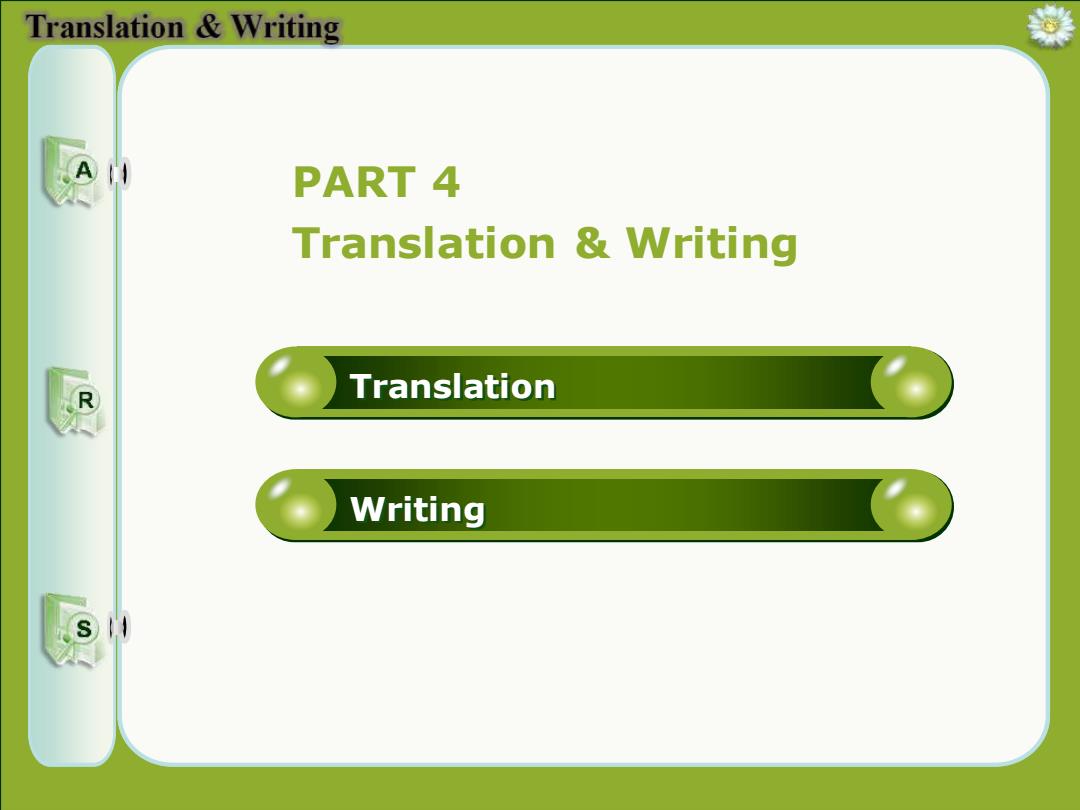
Translation Writing A PART 4 Translation Writing R Translation Writing S
Translation PART 4 Translation & Writing Writing
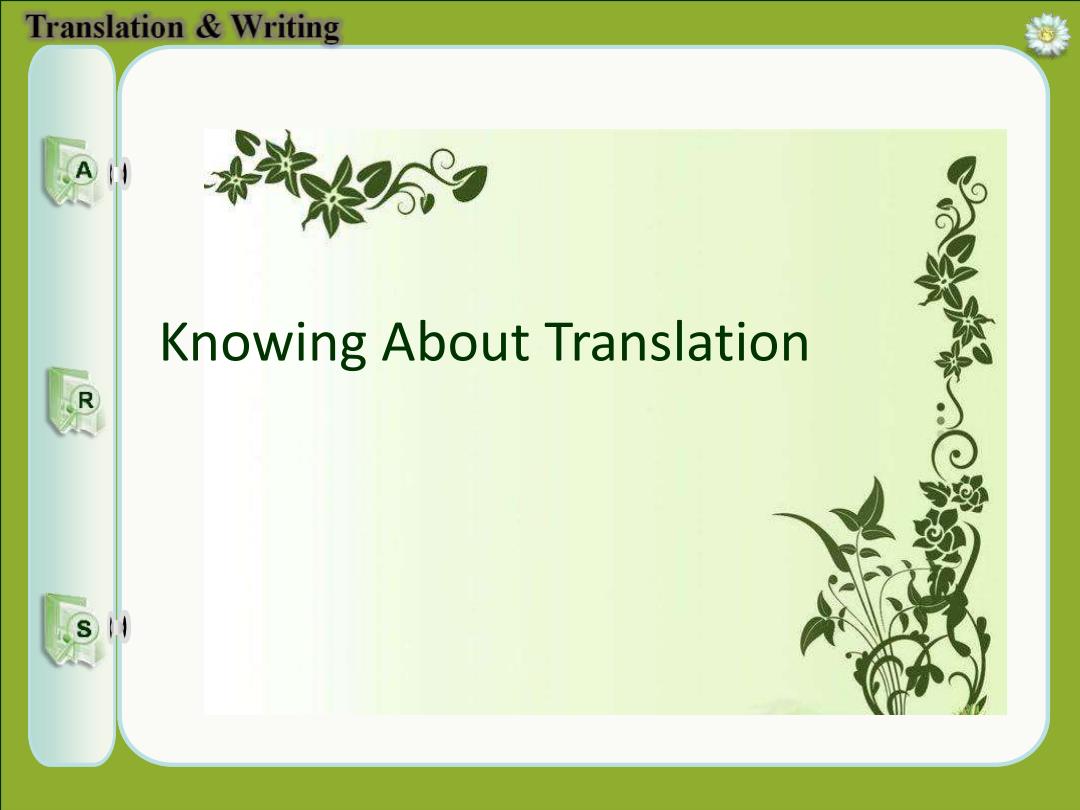
Translation Writing 袜5的 Knowing About Translation R
Knowing About Translation
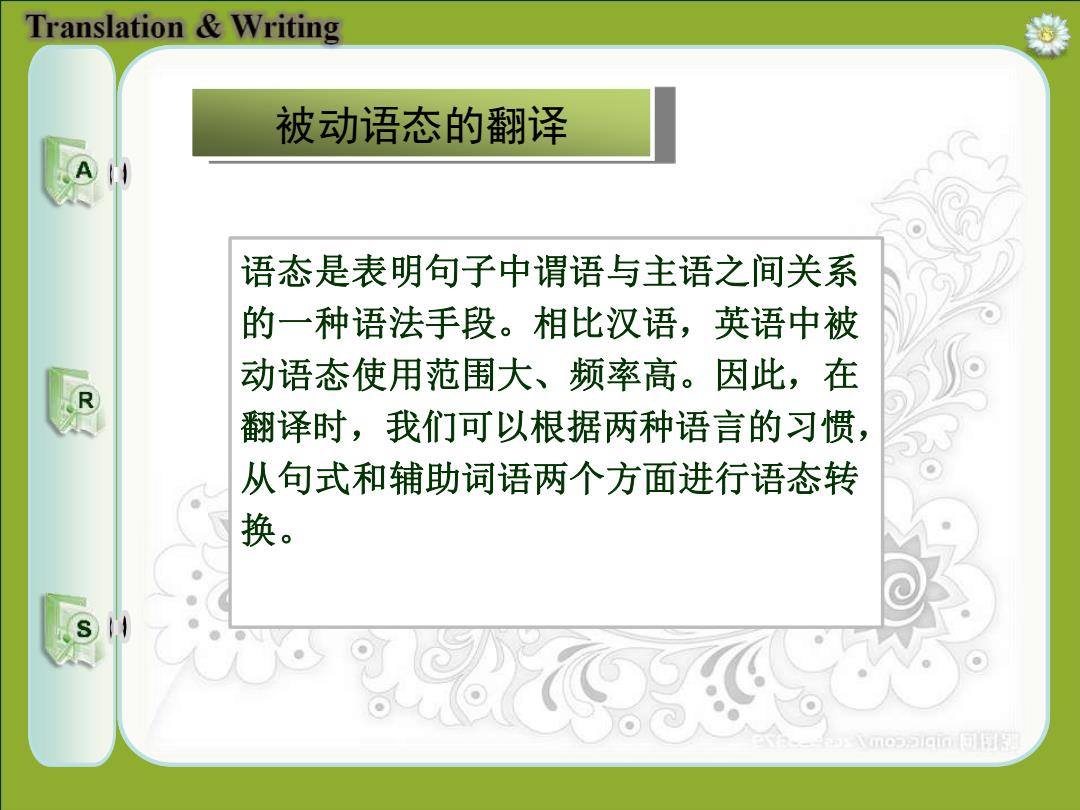
Translation Writing 被动语态的翻译 语态是表明句子中谓语与主语之间关系 的一种语法手段。相比汉语,英语中被 动语态使用范围大、频率高。因此,在 翻译时,我们可以根据两种语言的习惯, 从句式和辅助词语两个方面进行语态转 换。 每mo2am同同
被动语态的翻译 语态是表明句子中谓语与主语之间关系 的一种语法手段。相比汉语,英语中被 动语态使用范围大、频率高。因此,在 翻译时,我们可以根据两种语言的习惯, 从句式和辅助词语两个方面进行语态转 换
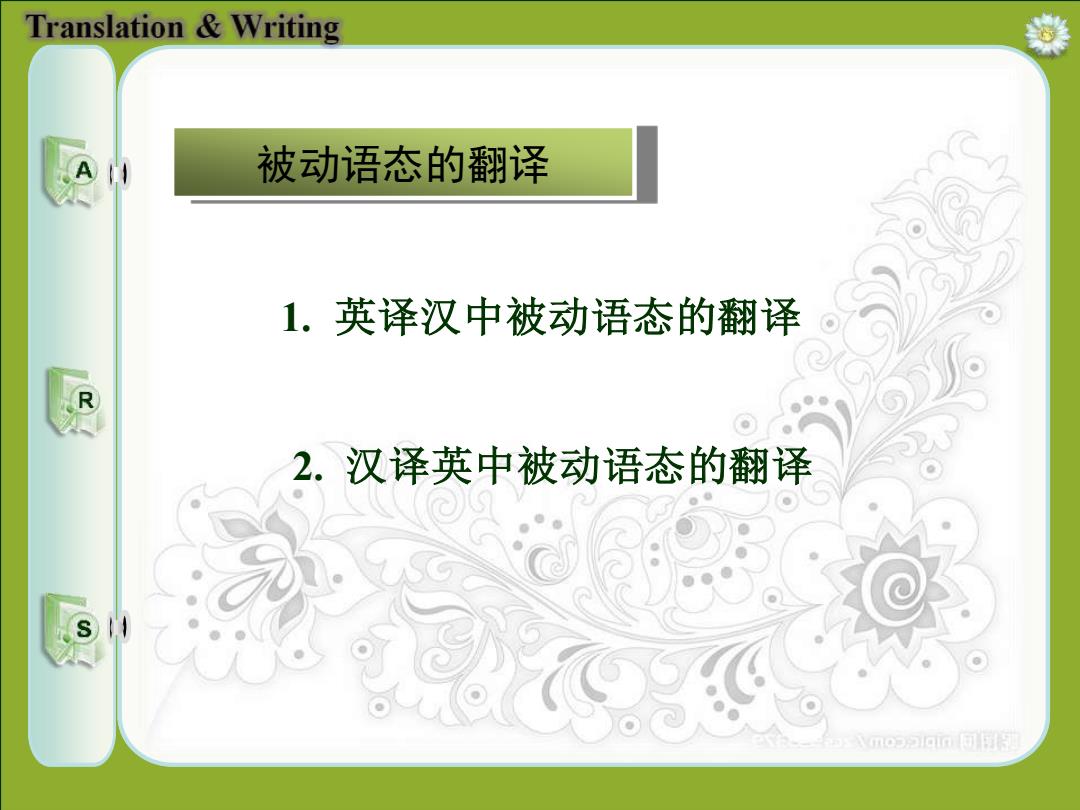
Translation Writing 被动语态的翻译 1.英译汉中被动语态的翻译 2.汉译英中被动语态的翻译 amop2am间同
1. 英译汉中被动语态的翻译 2. 汉译英中被动语态的翻译 被动语态的翻译
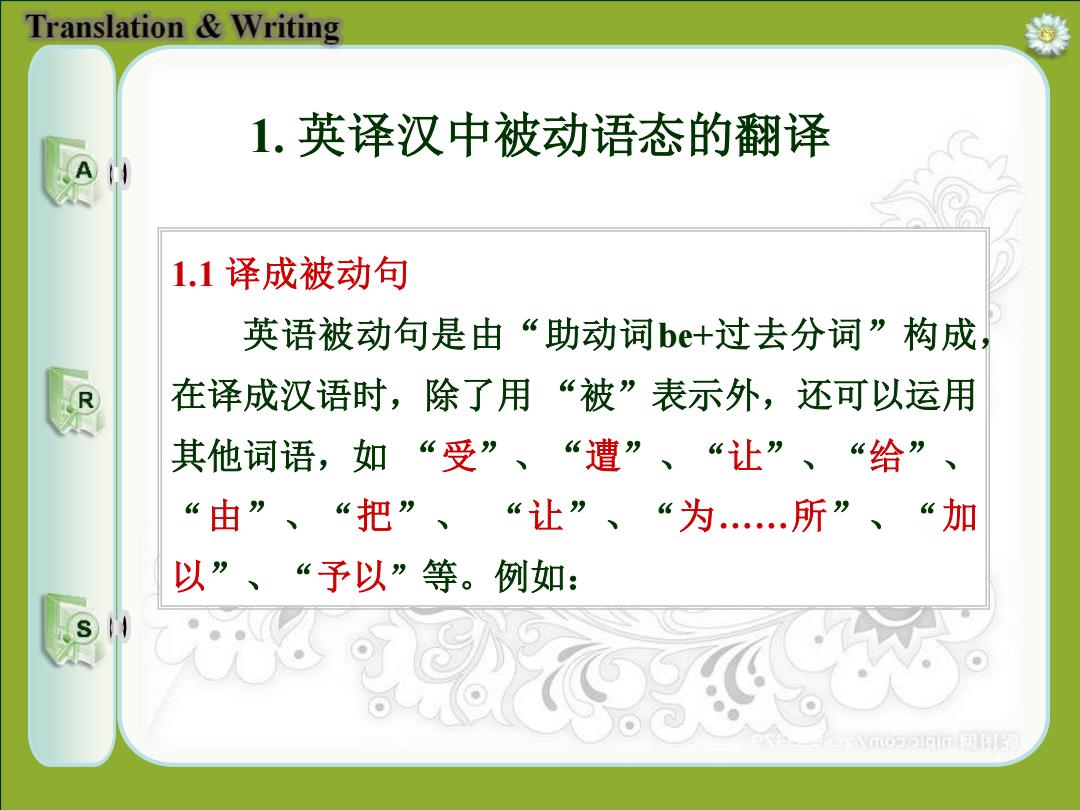
Translation Writing 1.英译汉中被动语态的翻译 1.1译成被动句 英语被动句是由“助动词be+过去分词”构成, 在译成汉语时,除了用“被”表示外,还可以运用 其他词语,如“受”、“遭”、“让”、“给”、 “由”、“把”、“让”、“为…所”、“加 以”、“予以”等。例如: 每mo2am间同
1.1 译成被动句 英语被动句是由“助动词be+过去分词”构成, 在译成汉语时,除了用 “被”表示外,还可以运用 其他词语,如 “受” 、 “遭” 、 “让” 、 “给” 、 “由” 、 “把” 、 “让” 、 “为……所” 、 “加 以” 、 “予以”等。例如: 1. 英译汉中被动语态的翻译
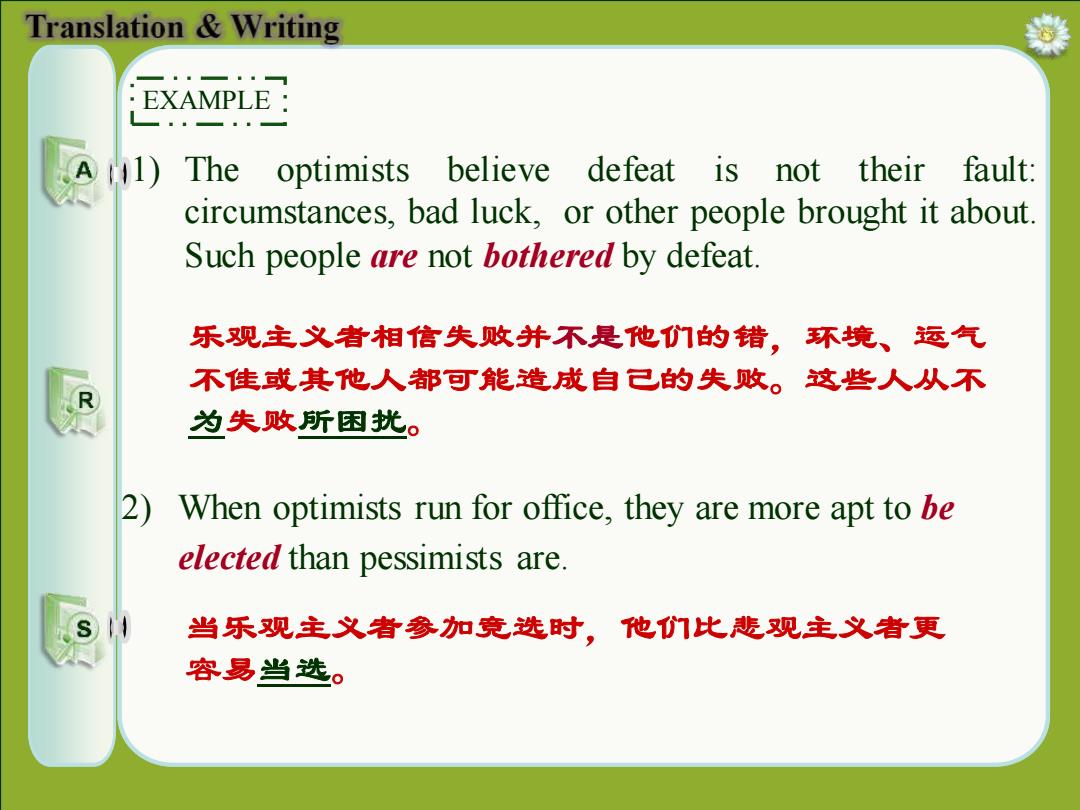
Translation Writing EXAMPLE 1) The optimists believe defeat t is not t their fault: circumstances,bad luck,or other people brought it about. Such people are not bothered by defeat. 乐观主义者相信失败并不是他们的错,环境、运气 不佳或其他人都可能造成自己的失败。这些人从不 为失败所困扰。 2) When optimists run for office,they are more apt to be elected than pessimists are. 当乐观主义者参加竞选时,他们比悲观主义者更 容易当选
1) The optimists believe defeat is not their fault: circumstances, bad luck, or other people brought it about. Such people are not bothered by defeat. 乐观主义者相信失败并不是他们的错,环境、运气 不佳或其他人都可能造成自己的失败。这些人从不 为失败所困扰。 当乐观主义者参加竞选时,他们比悲观主义者更 容易当选。 2) When optimists run for office, they are more apt to be elected than pessimists are. EXAMPLE
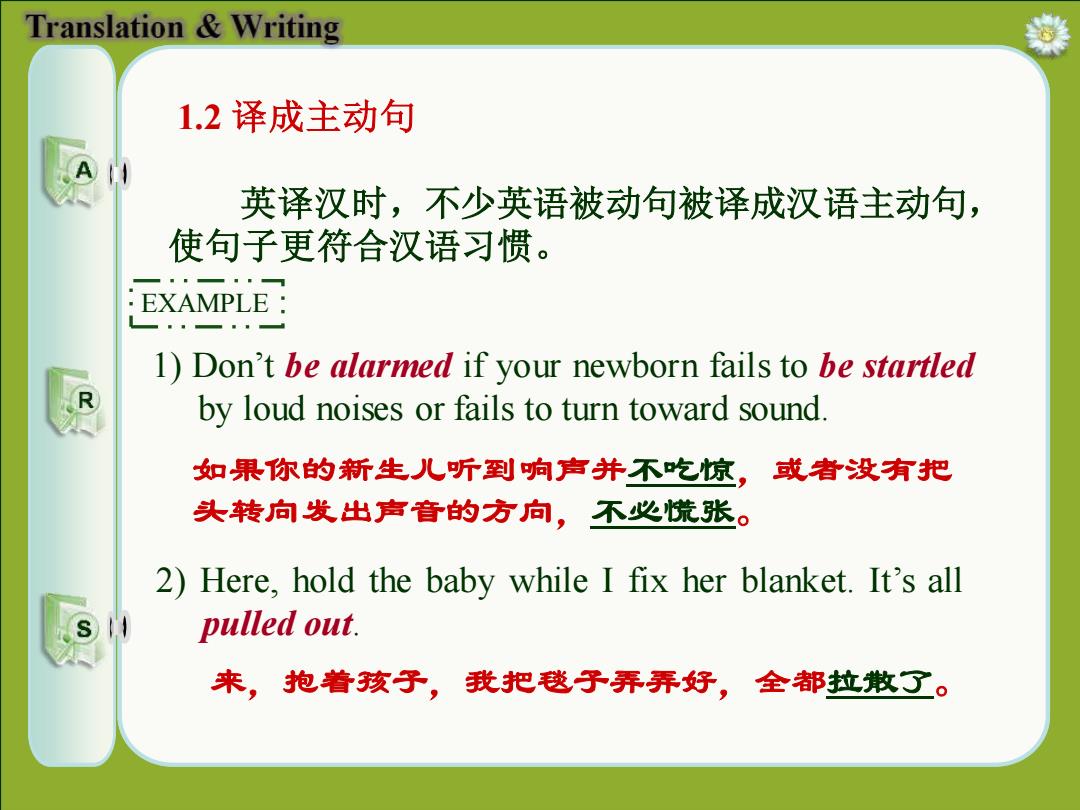
Translation Writing 1.2译成主动句 英译汉时,不少英语被动句被译成汉语主动句, 使句子更符合汉语习惯。 EXAMPLE 1)Don't be alarmed if your newborn fails to be startled by loud noises or fails to turn toward sound. 如果你的新生儿听到响声并不吃惊, 或者没有把 头转向发出声音的方向,不必慌张。 2)Here,hold the baby while I fix her blanket.It's all pulled out. 来,抱着孩子, 我把毯子弄弄好,全都拉散了
2) Here, hold the baby while I fix her blanket. It’s all pulled out. 1) Don’t be alarmed if your newborn fails to be startled by loud noises or fails to turn toward sound. 如果你的新生儿听到响声并不吃惊,或者没有把 头转向发出声音的方向,不必慌张。 来,抱着孩子,我把毯子弄弄好,全都拉散了。 1.2 译成主动句 英译汉时,不少英语被动句被译成汉语主动句, 使句子更符合汉语习惯。 EXAMPLE
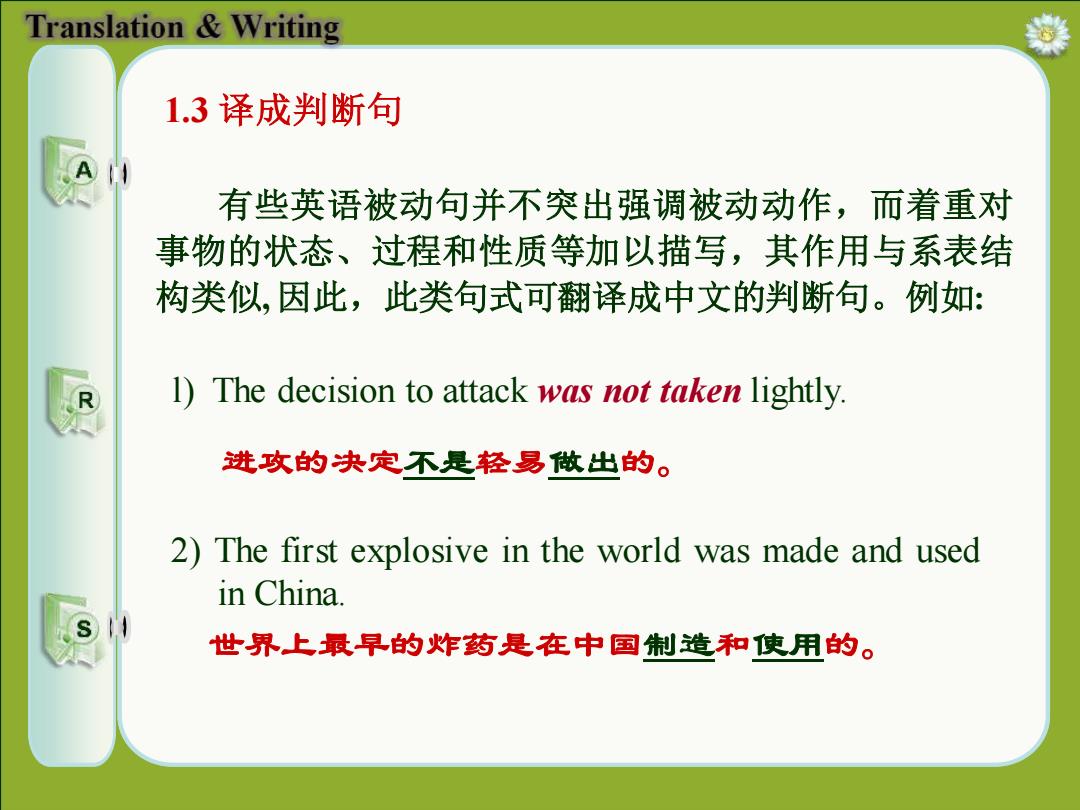
Translation Writing 1.3译成判断句 有些英语被动句并不突出强调被动动作,而着重对 事物的状态、过程和性质等加以描写,其作用与系表结 构类似,因此,此类句式可翻译成中文的判断句。例如: 1)The decision to attack was not taken lightly. 进攻的决定不是轻易做出的。 2)The first explosive in the world was made and used in China 世界上最早的炸药是在中国制造和使用的
1.3 译成判断句 有些英语被动句并不突出强调被动动作,而着重对 事物的状态、过程和性质等加以描写,其作用与系表结 构类似, 因此,此类句式可翻译成中文的判断句。例如: l) The decision to attack was not taken lightly. 世界上最早的炸药是在中国制造和使用的。 进攻的决定不是轻易做出的。 2) The first explosive in the world was made and used in China
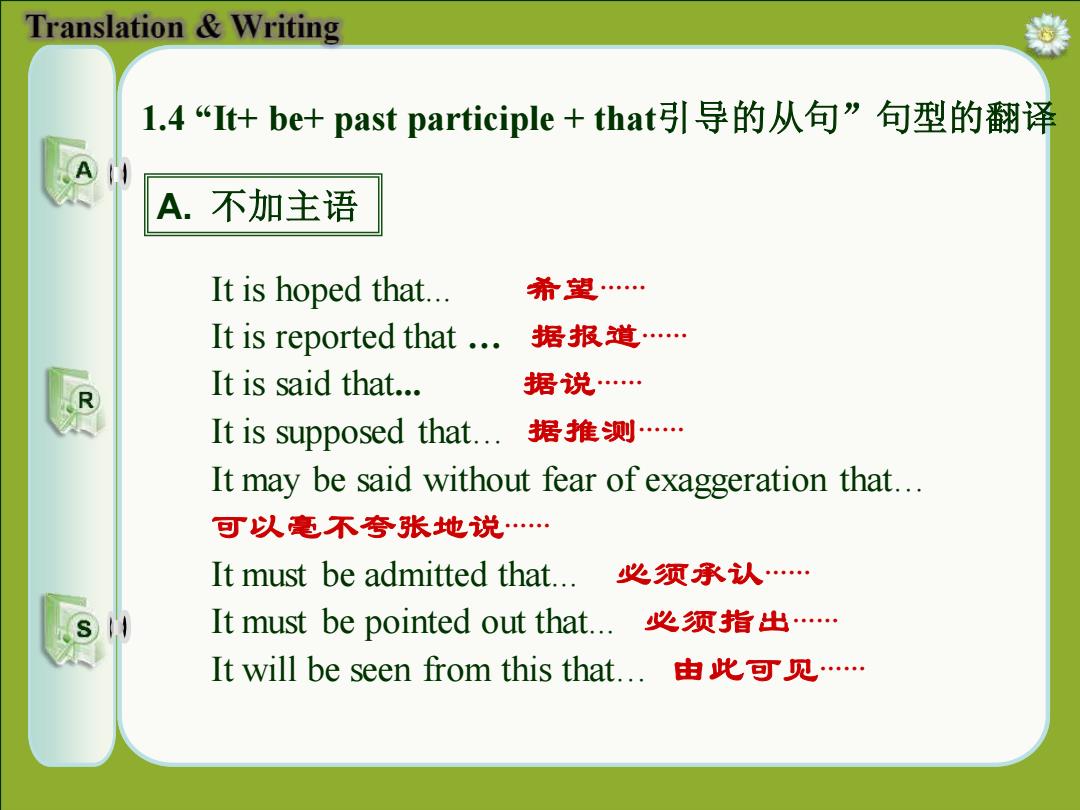
Translation Writing 1.4“It+be+past participle+that引导的从句”句型的翻译 A.不加主语 It is hoped that... 希望… It is reported that .. 据报道… It is said that... 据说… It is supposed that... 据推测… It may be said without fear of exaggeration that... 可以毫不夸张地说… It must be admitted that..必须承认… It must be pointed out that..必须指出 It will be seen from this that..由此可见
A. 不加主语 It is hoped that... 希望…… It is reported that … 据报道…… It is said that... 据说…… It is supposed that… 据推测…… It may be said without fear of exaggeration that… 可以毫不夸张地说…… It must be admitted that... 必须承认…… It must be pointed out that... 必须指出…… It will be seen from this that… 由此可见…… 1.4 “It+ be+ past participle + that引导的从句”句型的翻译
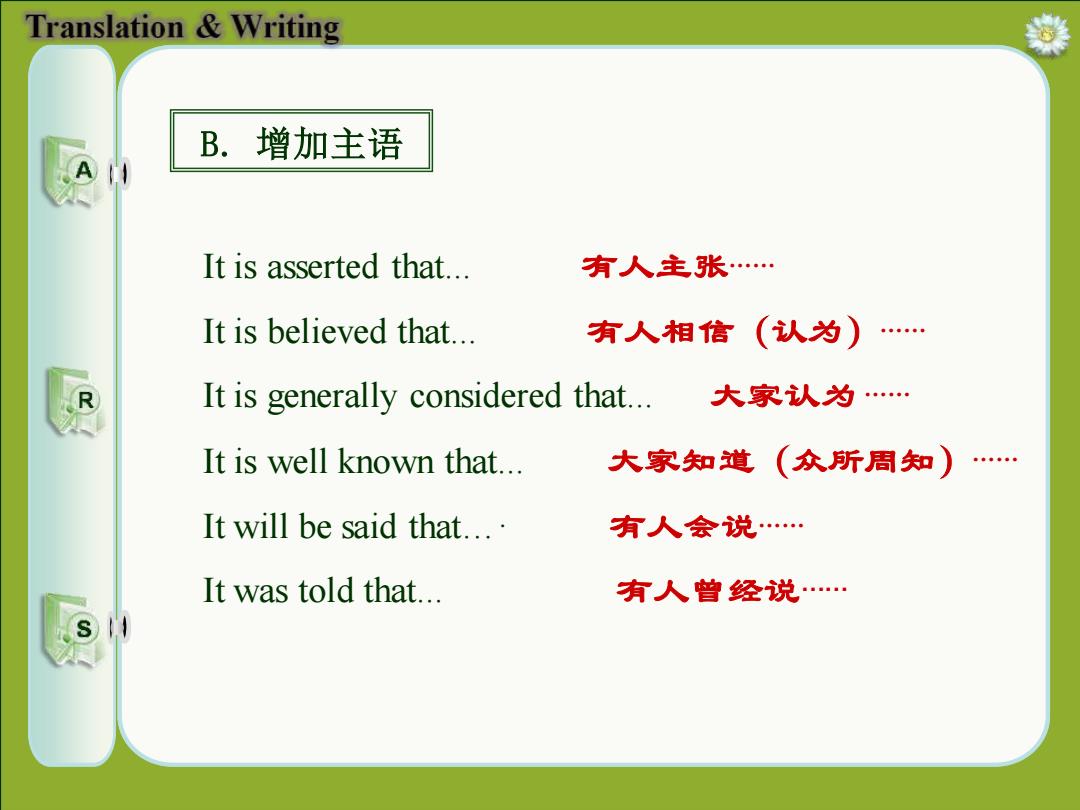
Translation Writing B.增加主语 It is asserted that... 有人主张… It is believed that... 有人相信(认为) It is generally considered that... 大家认为… It is well known that... 大家知道(众所周知) It will be said that... 有人会说… It was told that... 有人曾经说…
B. 增加主语 It is asserted that... 有人主张…… It is believed that... 有人相信(认为)…… It is generally considered that... 大家认为 …… It is well known that... 大家知道(众所周知)…… It will be said that…· 有人会说…… It was told that... 有人曾经说……